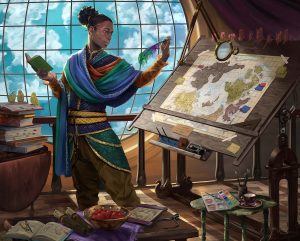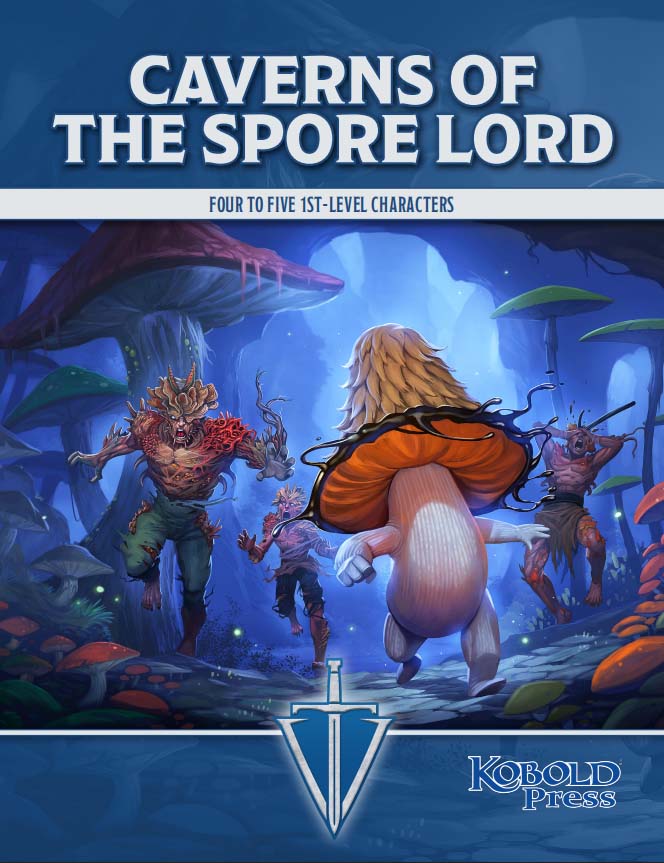
It’s time again for the Kobold Press advice column, Pack Tactics!
Our roundtable experts this month are Ben Eastman, Basheer Ghouse, Philip Larwood, Ben McFarland, Brian Suskind, Jeff Quick, and Mike Welham.
You might recognize some of these names from Kobold Press products such as the updated Tome of Beasts 1 and Campaign Builder: Dungeons & Ruins. And as contributors to this very blog!
Whatever questions you have about running a game, handling tricky metagame traps, and ruling edge cases, they’ve got an answer. Sometimes several!
Anonymous Player asks . . .
I keep reading things like “The GM is also a player,” but my GM seems sort of overwhelmed. I’d like them to have a better time. What makes a PC fun to GM for?
Brian Suskind: First, be an active player. Drive the story forward. When a scene ends, don’t wait for the GM to prompt you with “What are you doing now?” Jump in there and say “We head out the door and go to . . . .” whatever’s next.
Basheer Ghouse: Proactive choices are king. Be an active participant in driving the story of your character and talking about what you think would be cool to see in the campaign.
Brian: Yes, which leads me to my second point, help the GM by taking on a share of the collaborative story telling process. When you make an attack or cast a spell, narrate what you are doing, what your character looks like. Be dynamic, be descriptive. You can even offer to describe certain scenes. Ask your GM, “Can I describe the tavern?” And then lay it out for your GM.
Mike Welham: Talk about the game. If you see something you like, let your GM know. That tells them you’re paying attention, and it means you’ll likely get more of whatever it is. It doesn’t have to be all positive feedback, though. If you’re having a difficult time with something, let the GM know about that. Don’t just complain—offer solutions. Your GM wants to have fun too, and GM fun is a rising tide that lifts all boats.
Also, I agree with Brian’s points.
Brian: And I agree with Mike’s points.
Mike: Yay! Now let’s turn to the conflict in the Middle East…
Brian: Everyone give RPGs a chance!
Mike: This reminds me of another point: try not to bring a lot of off-topic stuff to the table.
Jeff Quick: I think that reacting (maybe even dramatically over-reacting) in an appropriate way, is encouraging and helpful. Most players in my games are looking to act cool and crack jokes. As the GM, you are often the straight man for a room of comics. That’s ok. That’s part of the job.
But I have a player who occasionally acts scared when a threat appears. He acts surprised when some sudden reversal occurs. The player is clearly not actually scared or surprised. But amid the wisecracking irony that everyone slings, even one person taking it “seriously” in character is noticeable. And it helps! I feel like someone is paying attention and playing along with the scenario I’m presenting.
Basheer: Oh yeah, having someone willing to stick to tone is just incredible. Some of my favorite people to be in APs with are ones who commit to a tone rather than just doing bits.
Ben McFarland: Committing to tone is just beautiful.
But also, snacks. It has nothing to do with your character, but figure out what your GM likes to eat and bring snacks.
Like Mike says, tell them when you dig elements they’re presenting, when you see a hook you want to chase, when you really liked a description or a combat or an interaction. Or tell them how you hope some element may align with your character’s past/agenda/goals because of reasons. Help them lay the storyline groundwork by showing them the path your character’s journey might take. It makes the whole endeavor way more fun.
And give them hooks, unrequited loves, failed mentors, spurned rivals, and unfinished tasks. Things they can loop back into your character’s story.
Phillip Larwood: However, I will say that if you are the sort of player who likes creating a backstory for your character, make sure that the backstory doesn’t cause unnecessary drama or angst for the other players or the GM and that it fits into the campaign in a way that seems natural and plausible. I have personally seen backstories that have interfered with the campaign in ways that just made it difficult for all concerned.
Basheer Ghouse: Being willing to run away is wildly underrated as a way to play nice for your GM.
Ben Mc: Oh man, seriously, be willing to run. When it looks like an overwhelming force, straight death, and the time isn’t right, just book it. It allows your GM not to be on the hook for TPK.
But also, definitely bring snacks.
Basheer: It’s difficult, as a GM, to make threats that A) come off as intimidating and B) show up more than once. If the PCs are willing to run away occasionally, it makes it much easier to telegraph, “Hey here’s a dude you should not fight today,” and lay some groundwork for a story to develop, without killing half the party.
Ben Eastman: Recently, I was in a game with a GM who had a massive homebrew world, and he was running an adventure where he expected us to remember everything about the last session. We uh . . . didn’t. But the experience was a useful object lesson. If the GM bothers to give someone or something a name and a description, that means they thought it was important. Remember those details and incorporate them into your play and discussion.
Phil: Have your character keep a diary or journal. Then, when you have to remember things that happened three game months ago, you can take out your trusty manuscript and enlighten everyone else (even the GM)!
Ands the last think I would say is to know your character’s abilities and be ready to take your turn in combat before your turn comes around. This is more of a player thing than a player-character thing, but knowing your character’s abilities can help bring your character to life.
What Do You Think?
How would you handle this situation? Let us know in the comments!
Do you have a question for the pack? Let our pros weigh in on your tough questions. Then check back first Friday of each month for more Pack Tactics!

